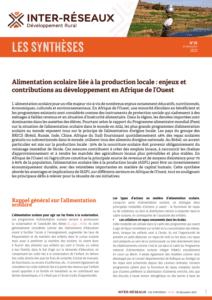The agricultural productivity gap between actual and potential yields in Africa south of the Sahara has been a persistent challenge since the post-World War II independence movement. Despite efforts by governments, international foundations, UN agencies, and private investors, smallholder agricultural production—which dominates in Africa—continues to lag behind its potential, and products are often of low and variable quality.
Why so? In their new book African Farmers, Value Chains and Agricultural Development: An Economic and Institutional Perspective, Alan de Brauw of IFPRI and Erwin Bulte of Wageningan University and Research show that while making largely rational production decisions, African smallholder farmers are limited in what they can achieve because of the economic and institutional environment in which they operate.







